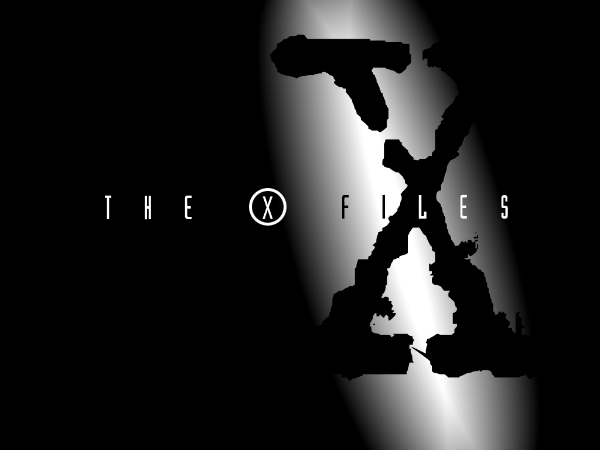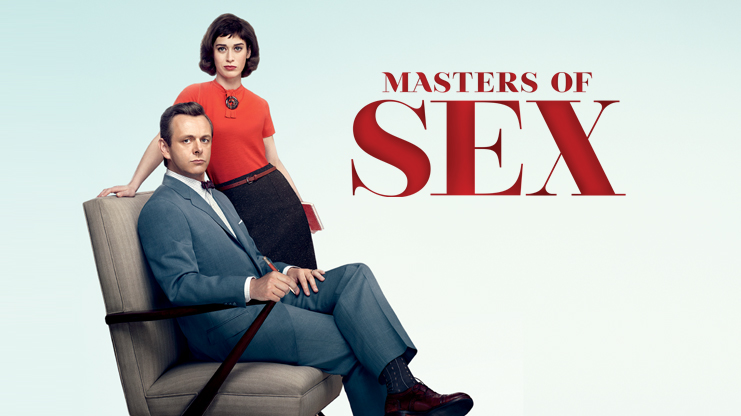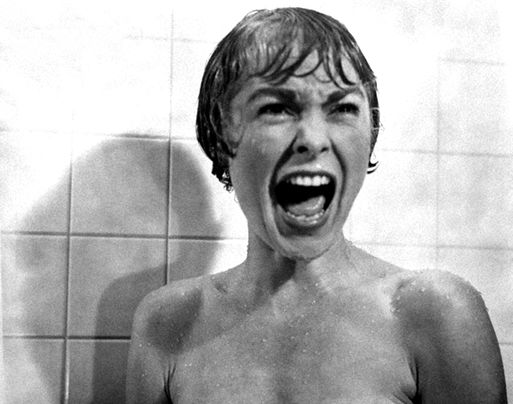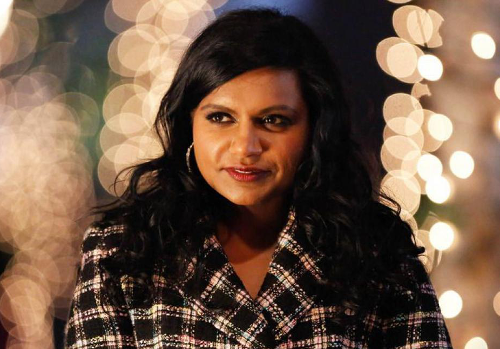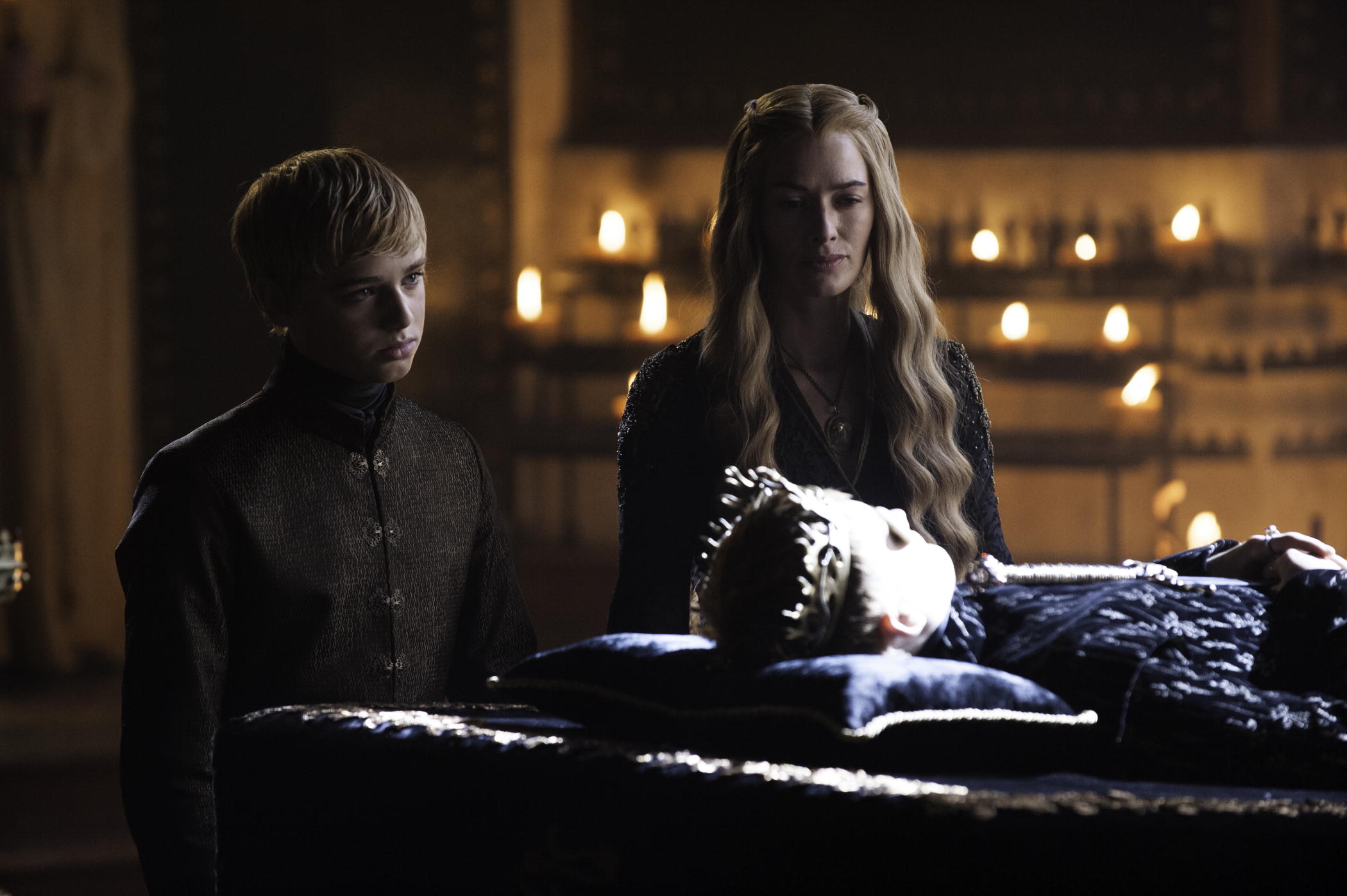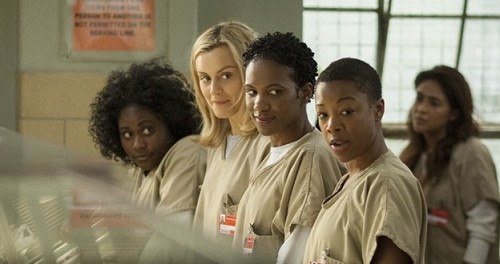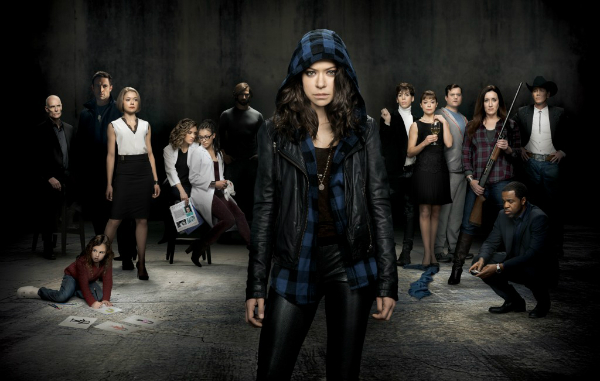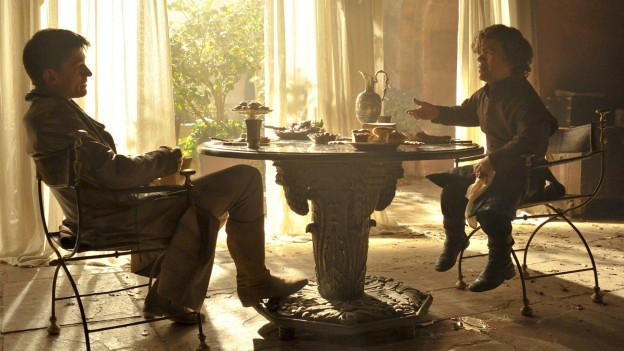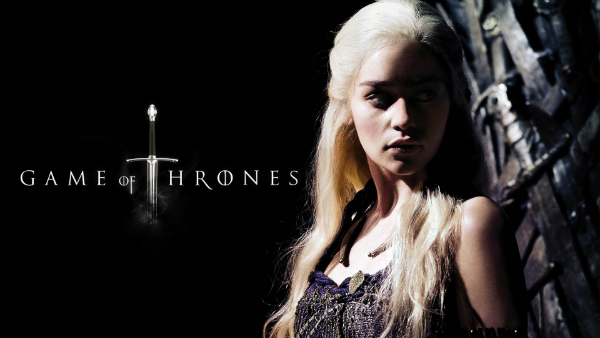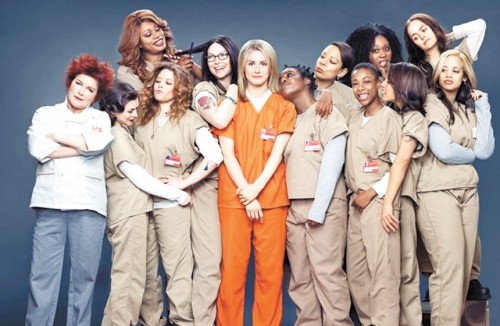This guest post by Caitlin Keefe Moran appears as part of our theme week on Representations of Female Sexual Desire.
Oh Scully. You beautiful, badass, rosebud-mouthed, flame-haired Valkyrie wearing a blazer two sizes too big for you: what do you desire? We know what Mulder desires. He wants to look at porn in his office. He wants to flirt and call the shots. He wants ALIENS. He does not want to give you a desk.
But what about you? Why do we get such a cursory glimpse into your passions? How is it possible that in nine years we only see you go on two dates, Scully? (Three if we’re counting that one weird dinner with the Smoking Man… Lord help us if that was a date.) And when we finally do see you express interest in someone…oh, Lord. Remember him? The guy with the hallucinogenic tattoo? You were pretty into him; plus you felt stagnant in your personal life, and Mulder wouldn’t give you the damn desk. And it was nice to see you let loose a little bit, honestly. You even got a terrible lower-back tattoo of a snake biting its own tail, which… OK it’s not what I would have picked for you, but hey! You were living. All this fun goes sour when this dude’s tattoo tells him to murder you after you slept together. That you slept with him at all is conjecture—the camera pans away before we even see you kiss him, which is much more prudery than the show’s directors ever exercised with Mulder. Tattoo guy tries to put you in his building’s incinerator. It wasn’t pretty.

Did it seem to you that the message you were supposed to get was, “Whoa, rein it in there, girlie! Don’t go flaunting those goods all over town!”? Because that’s what it seems like to me. Expressing your sexuality makes you vulnerable, the message goes, and, if the snake tattoo is any indication, faintly ridiculous. Expressing your sexuality makes you shameful. Expressing your sexuality makes you deserving of punishment.
Or how about Padgett, the writer who stalked you? Remember him? John Hawkes at his most moon-eyed and creepy? He might be the king of the all the men lining up to mansplain your feelings to you (though he’s only slightly ahead of the Smoking Man and his “wall around your heart” speech. STFU, Smoking Man). He has a lot to say (and write) about the way you present or hide yourself as a woman, and it hurts because it’s pretty much all true (and because he’s straight-up bonkers). Padgett watched you for long enough to read your insecurities as if they were typed out in one of his manuscripts—and sometimes they are. He knows that you downplay your femininity as much as possible so your (almost exclusively male) coworkers will take you seriously, because, as Padgett puts it, “to be thought of as simply beautiful was bridling, unthinkable.”

In fact, most of the women on The X-Files only show their sexuality when they are outside of themselves. Sometimes they’re controlled by an unusual alignment of the planets, like Detective White in “Syzygy.” Other times they’re products of a male fantasy (or an artificial intelligence’s approximation of a male fantasy), like the nurses in Kill Switch, or a lingerie-clad Diana Fowley in The Sixth Extinction II: Amor Fati. It would make sense, then, that you would want to keep your sexuality on lockdown beneath the frumpy blazers (also: it was the 90s). But that doesn’t make it any less frustrating to see you squash any hint of womanhood (let alone sexuality) because any hint would be unwelcome in the testosterone cloud of the FBI.
I wish you had a female friend, Scully. We hardly ever see you talk to another woman, much less confide in one. It’s not like she has to be your bosom buddy or anything. Just a pal you can get drinks with after work, blow off some steam, swap stories about your frustrating coworkers. Maybe you two could talk about what you want, at work, in bed, in life. As people. If only Monica Reyes could have shown up a couple of seasons earlier. I like to imagine the two of you at a drunk brunch, bonding over pumpkin spice pancakes with maple bacon glaze and a gallon-sized bucket of Bloody Marys. There’s strength in numbers, after all. Maybe with the two of you together, everything wouldn’t have seemed so….buttoned-up. Maybe with someone to talk through your anxieties with, you and Mulder wouldn’t have waited seven years to…but never mind, that’s a whole other article.

Let’s talk about Baby William for a second. Your miracle baby. Your super soldier. Your half-alien messiah. The Christ allegory in the Season 8 finale was slathered on so thick we could have spooned it off and eaten it. The lowly birthplace, the star of Bethlehem (which was, what, a spaceship? Do we ever figure that out?), the Lone Gunmen showing up after the fact with gifts like the Three Wise Men. But what does this say about you, Scully? The virgin mother of the miracle child. Immaculate and without sin. Clean. It takes us a season and a half to learn that you weren’t, in fact, visited by the Holy Spirit, or the aliens, or the government; your baby was born of sexual intercourse with another human being, like most other babies. But we don’t get to see this moment, with Mulder, no less, the love of your life—instead we hear it described callously by an NSA agent, who had the whole place bugged. Why is this, Scully? Is it because once presented with the idea that you might be a sexual being, we couldn’t see you any other way? That we wouldn’t be able to take you seriously as a person if we understood that you could, just possibly, desire sex?
It certainly seemed that way in “Three of a Kind,” when the Lone Gunmen snooker you into helping them spy on a Defense Department contractor’s convention in Las Vegas. Of course you remember this, Scully—when a government operative injected you with an anoetic histamine that inhibited your intellect so you would forget the damning results of the autopsy you just finished? You certainly were silly then, trying to push a table bolted to the floor as if it was a rolling cart, tickling strangers at whim. Everyone attributed it to jetlag until you found your way to the hotel lobby and began flirting with the assembled contractors. The sight of you seductively taking a cigarette out of Morris Fletcher’s (admittedly skeezy) fingers so disturbed Lone Gunmen member Frohike that he grabbed you and immediately brought you in for evaluation. Message: a flirting Scully isn’t Scully at all. Sexual desire is something you’re above. You roll your eyes at Mulder’s innuendo and come-ons, because you are a Serious Woman, doing Serious Work. The roles you can play are proscribed by your gender, even as you have greater freedom than many of television’s women, what with the gun-touting and the badge-flashing. But there is a limit to this freedom: sexual desire is dangerous, dangerous, dangerous. And in the face of this danger, sometimes it’s just easier to clam up and clamp down. To go quiet. But Scully, I wanted so much more for you.
Caitlin Keefe Moran is an editor in New York City. Her work has appeared on The Toast, in The Iowa Review, and other outlets. She lives in Queens and feels passionately about donuts and splitting infinitives as a form of protest.
